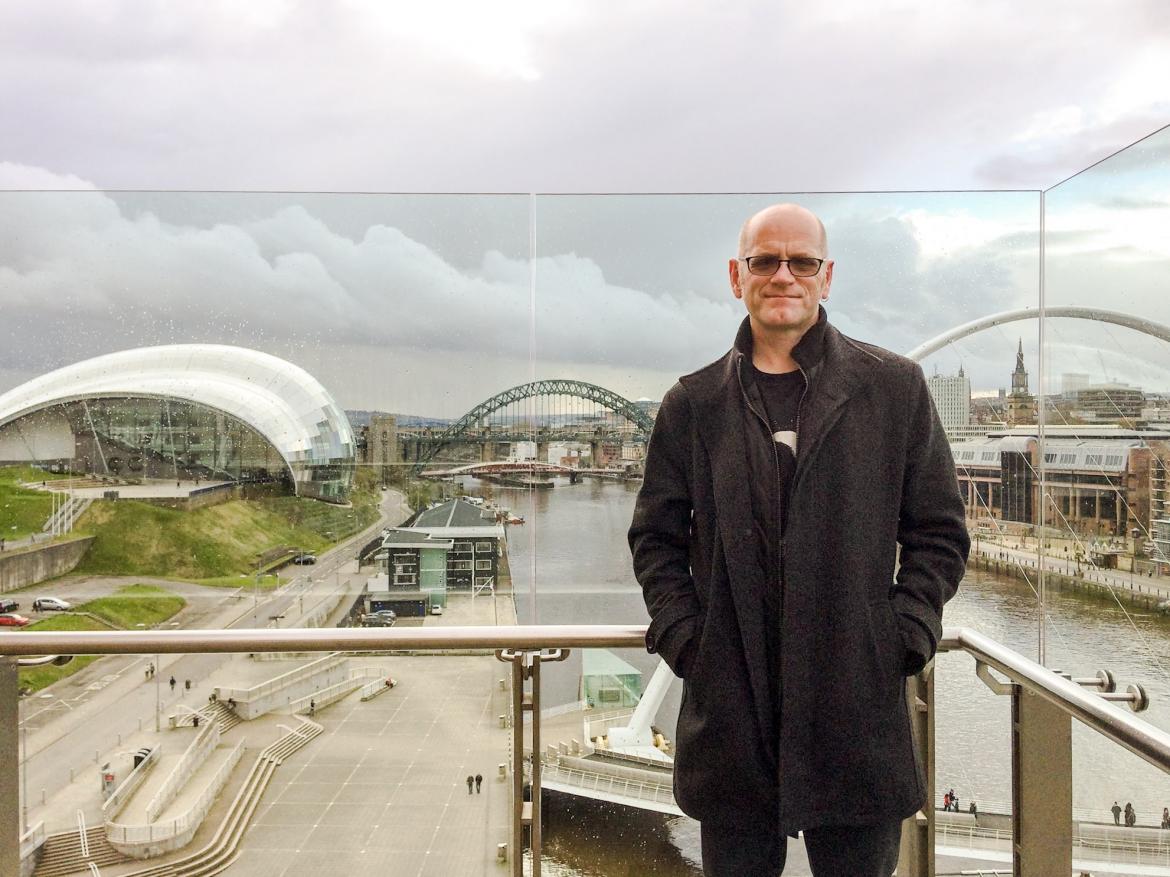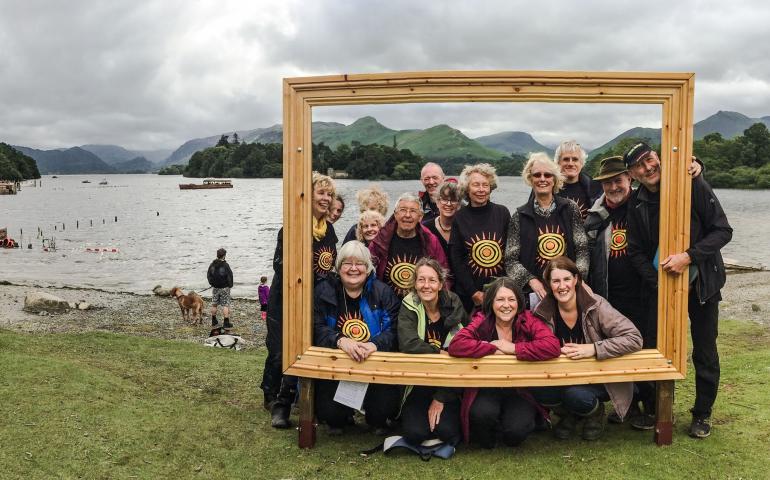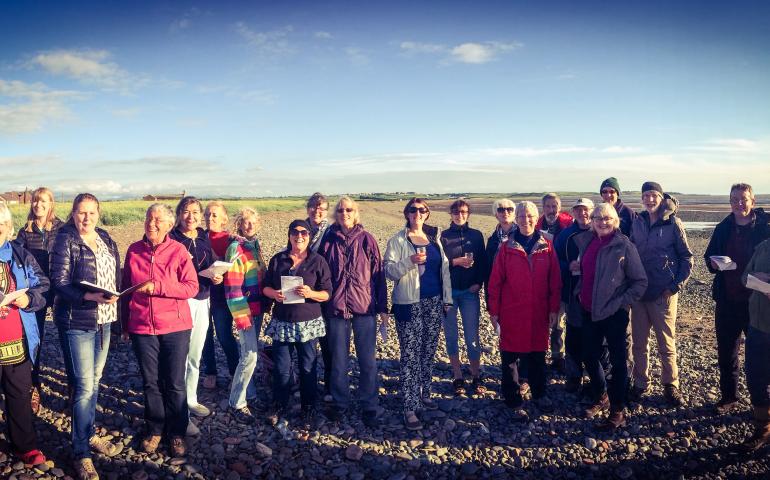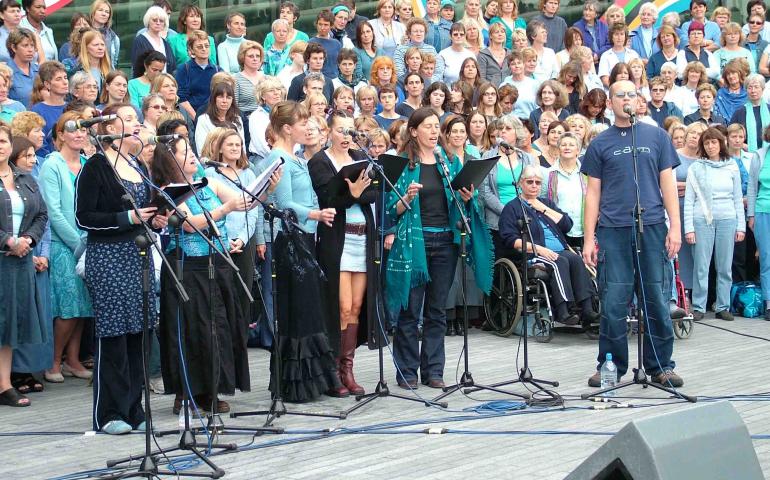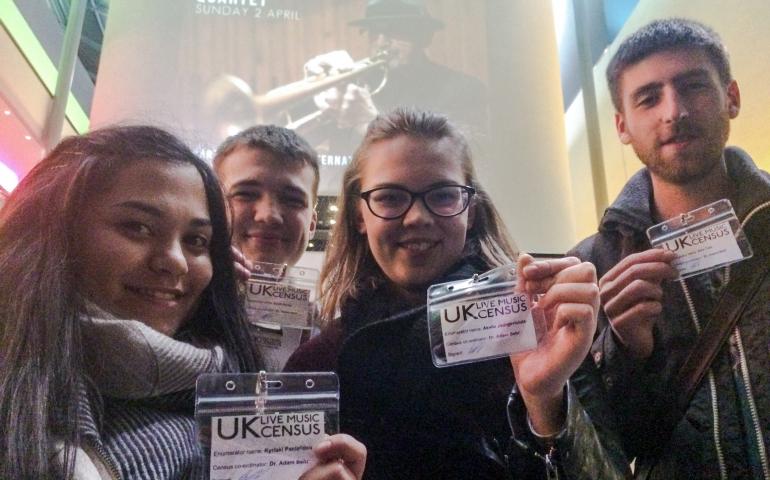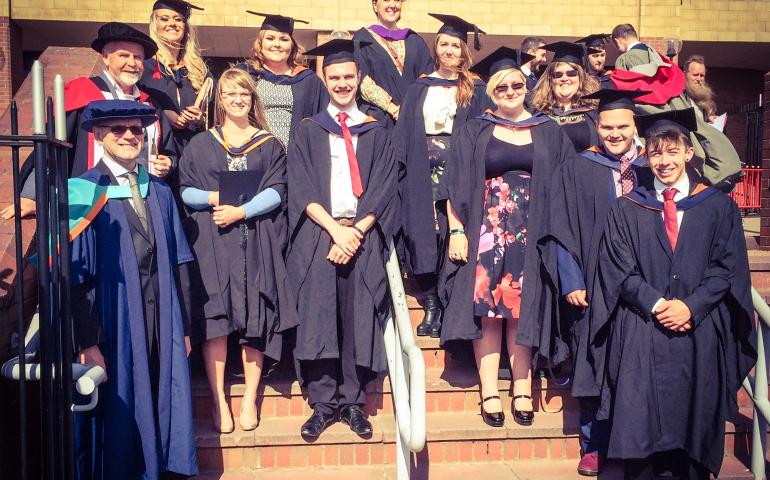My Music Education Life is an opportunity for members to share, in their own words, a flavour of their professional world. This is a regular article in the ISME newsletter. If you wish to submit an article for this section of the ISME newsletter please email to Sara Hood.
This My Music Education Life is from Dave Camlin, Head of Higher Education and Research, Sage Gateshead, UK.
I had the good fortune to be born and raised in Cumbria, one of the more remote parts of the UK, where there are more sheep than people. For me, developing a career in music whilst staying connected to the “dear hills where first [I] rose” (Wordsworth 1888) has therefore always been about building a portfolio of work, and I’ve been heavily involved in music education since well before I moved back to Cumbria twenty years ago.
My musical background is as a singer/song-writer, and I’ve played in various bands over the years, often with a folk-y flavour to them. I got into music education initially through working with young rock and pop bands, and music technology, because that was where my skills and experience were at the time. Over the years, my own musical practice has shifted, and becoming a quarter of the a capella group Mouthful in 2003 has meant more of a focus on close harmony singing and vocal work.
At the moment, I lead two community choirs in the north of the UK in the ‘natural voice’ tradition, and get them involved in the other musical things I do. My Cumbrian choir Sing Owt! recently featured in Terry Abraham’s award-winning film about a Cumbrian mountain, Blencathra, and both choirs are currently working toward a public ‘Coast to Coast’ concert at Sage Gateshead in July with Tryckster, the folk-rock band I front.
I don’t really see the dichotomy that often seems to exist between ‘high art’ and ‘everyday creativity’. I’ve been fortunate enough to perform in venues as diverse as the Royal Opera House, Glastonbury Festival, local arts centres, river banks, beaches and people’s front rooms, and I see anything that helps to connect people or transform their experience through music as part of my job as a musician. Participation and music education is a key part of that.
I got involved with Sage Gateshead in 2001, 4 years before its iconic building in Gateshead opened its doors to the public, as a musician on the CoMusica project, building more opportunities in the region for children and young people to make music. Sage Gateshead has always talked about its artistic programme as consisting equally of performance and participation, and it’s been both exciting and humbling to be part of the evolution of that unusual premise. I led the organisation's ground-breaking Community Music traineeship programme for a few years, which facilitated over 100 musicians to develop the skills - and values - to be effective community musicians, and my passion for supporting the next generation of musicians came from that.
Although I left Sage Gateshead for a few years to set up the successful music charity SoundWave back in my native west Cumbria, I returned in 2010 to lead Sage Gateshead’s degree programmes, a role which continues to reward and inspire me on an almost daily basis.
I've used this opportunity as an ‘action research’ site for my doctoral studies, gaining a DProf in 2016 for the development of my ‘music in three dimensions’ model, which I see as part of an emerging philosophy of music education which integrate the disparate parts of musician identity which have troubled previous generations. I believe that the performer / teacher dichotomy is a false one, as is the excellence/access debate and all of the other binaries we spend our time arguing over.
For me, what I do is not just about training the next generation of musicians; it’s also about supporting their development as ‘musical citizens’ (cf. Elliott et al. 2016), helping them find the right way for them to fulfil their creative potential as musicians in contemporary society, as performers, teachers, producers, composers, activists, music therapists, youth and community workers, leaders and often a combination of all of the above.
Now that the economic model of music has transformed the working reality of most musicians, we have to re-imagine what it means to be a musician - not just today, but in twenty, thirty years time. It’s not true that you can’t make a living as a musician any more – you can, but musicians need to approach the business of being a musician differently, finding the values and beliefs which give their music meaning in an increasingly challenging, changing and conflicted world.
Socially-engaged performance is a key part of that – whether that’s engaging new audiences, or facilitating music-making for generations of people who no longer think of themselves as ‘musical’, I believe that the role of the musician in society is increasingly about connecting people to their birth-right to be musical.
For example, in a few weeks, some of the students from our BMus (Hons) Jazz Popular and Commercial Music and BA (Hons) Community Music degrees will form the house band and core choir for a concert by the UK’s first Blue Light Choir, a group set up with the mental health charity MIND and the NE emergency services, to use group singing as a way of improving and sustaining the mental health and wellbeing of fire, police and ambulance services personnel. It’s a great opportunity for our students not just to perform on one of Sage Gateshead’s illustrious stages, but to experience first-hand the tremendous impact that these kind of events can have on the lives of all those involved, performers and audience alike. Additionally, two of our third year Community music students have been leading some of the constituent choirs, building up ‘real world’ skills, experience and situated knowledge that will be invaluable to them at the start of their musical careers.
Before then, they’ll also be part of our annual ‘Everyone Deserves Music’ festival of Community Music, where each third year student curates a performance event based around themselves as musicians. This year, these will range from a collaborative schools event in Northamptonshire, a musical Socrates Café in Durham, an installation celebrating the choral and religious traditions of the Chinese diaspora of Ap Chau island, a jazz-fusion showcase, a ‘Greek Night’ as an act of dissent against the UK’s withdrawal from the EU, two fantasy events for autistic children and young people, and much more.
Working in music education over the years has given me the opportunity to continue to feel part of music’s evolving position in society. When the entertainment industry took over the reins of music production in the UK, I despaired along with many of my musician friends. However, feeling part of an alternative vision of what music really is, and can become, fills me with hope.
The next generation of musicians will certainly have their work cut out to re-establish active music-making at the centre of human experience - in the face of the many technological, demographic and social challenges heading our way – but I’m sure they can do it. They have to – as we face the transition into an ever more uncertain global situation, music-making may be one of those vital experiences that reminds us of our common humanity.
Like most of my colleagues, I suspect, I certainly wouldn’t suggest that a career in music is straightforward. You have to have your wits about you, and there are as many challenges as there are benefits. Maintaining a depth of specialist skills whilst developing a breadth of knowledge about how and where to apply them; chasing ever-reducing funding pots; navigating the ever-changing practices of a music industry in transition; keeping your creative ‘spark’ alive; being simultaneously competitive and collaborative; being able to adapt to new situations as they emerge around you – all these require a level of resilience and adaptability that it isn’t easy to maintain.
Despite all of this, I can’t think of a better time to be a musician – I am convinced that we are on the verge of really understanding why music is – and always has been - so important to us as a species. As our existence on the planet appears ever more precarious, music may hold an important part of the key to our ongoing evolution, providing us with a way of building trust with our fellows that we will need if we are to become a truly global society. The work we do as ethically-guided musicians and music educators is therefore an important part of a much bigger picture, and I’m proud to be part of this vibrant community.
I’m certain that the careers of the musicians of the future won’t look much like the ones my generation aspired to - or even inhabited – but our skills, knowledge and experience aren’t redundant for it. What it means to be a musician may be changing and evolving, but what it means to be musical is the same as it ever was. I’m excited by the way the discourse in music education is shifting – music for social justice; music, health and wellbeing; new philosophies of music education; music and interculturality, technological innovation – these are all exciting new dimensions of music for us and our students to be part of. Becoming a musician may be a more complex career path than it used to be, but it’s exciting for all of us to be part of these changes, and I am both grateful and proud to be part of our common purpose - to champion music-making as an essential human activity.









